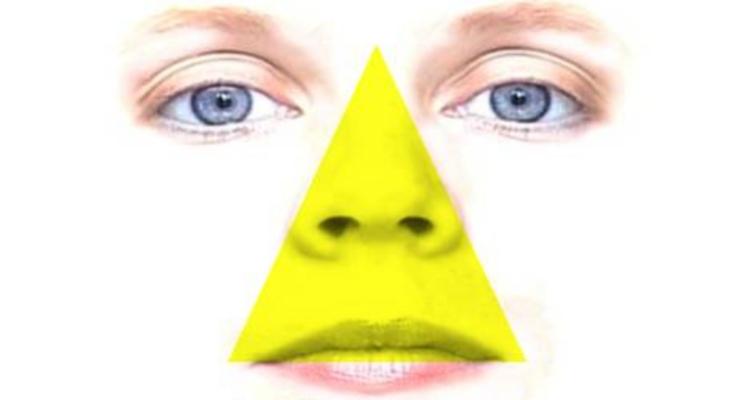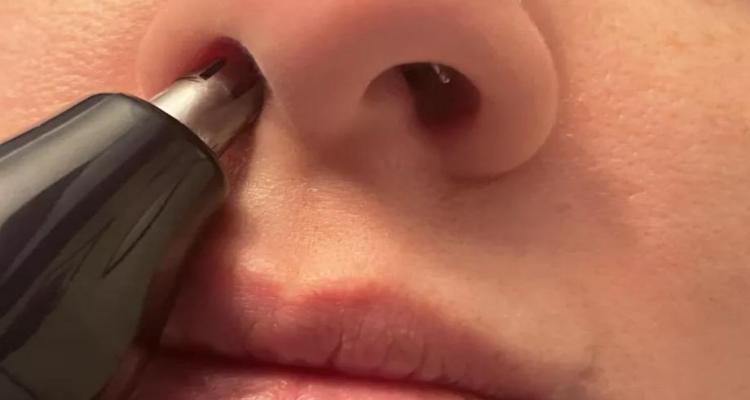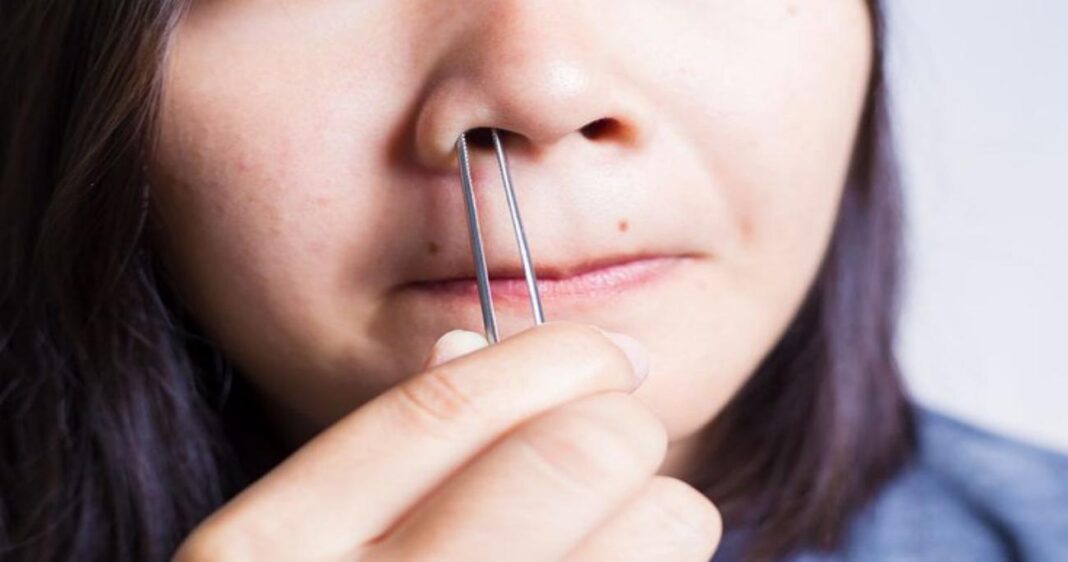Nose hair is natural. Everyone has it (although the length and thickness depend on your age and genes). Nevertheless, long nose hair doesn’t seem attractive at all, making people get the urge to pluck them out. However, notwithstanding their importance for your bodily functions, it is not a really good idea.
Although plucking nose hair is not recommended, most people panic over “I plucked my nose hairs, will I die?”. This article will explain why this myth was born, and what actually are the drawbacks of plucking nose hair (it’s not death!)
Table of Contents:
- Part 1: Why do we have Nose Hairs?
- Part 2: Debunking the Myth: Can Plucking Nose Hairs Lead to Death?
- Part 3: Safe Methods for Nose Hair Removal
- Part 4: FAQs about plucking nose hair
Part 1: Why do we have Nose Hairs?
As with all parts of our body, nose hair serves a great purpose.
This hair helps filter debris, dust, multiple types of allergens, and even bacteria, which might have otherwise entered your lungs through your nasal passage. Each nose hair is well coated with mucus, that sticks these foreign particles, preventing them from entering your body.
Nose hair also humidifies the air you breathe in, which helps in maintaining the health of your respiratory system and avoiding dryness.
Part 2: Can Plucking Nose Hairs Lead to Death?
It is important to keep nose hair trimmed, as no one wants to look unkempt with long strands of nose hair. We can say that plucking nose hair is not necessarily fatal, but multiple factors can lead to the spread of disease within your body.
For instance, plucking nose hair can result in serious harm, such as illness or infections. After removing the hair, the open pore will attract germs and dust from inside the nose. These can then travel through the bloodstream, spreading to the entire body and causing illness.
The Danger Triangle
There is a triangular area on our faces known as the danger triangle. This triangle starts at the bridge of the nose and extends to the corner of the mouth. It houses nerves and vessels that facilitate the circulation of blood throughout the body. Plucking nose hair can cause trauma to these sensitive nerves in your nasal area, causing pain and even bleeding.

In rare cases, this could result in conditions such as meningitis, (which involves inflammation of the protective membranes around the spinal cord and brain) or brain abscess (a form of inflammation and swelling in the brain related to an infection).
Plucking hair is also a common cause of ingrown hair. This is a condition when a hair strand, after being pulled out begins to grow back yet becomes trapped inside the skin, unable to push through the follicle. The result is a painful bump on the pore, often filled with pus, along with redness and irritation.
In a minority of cases – usually for people with weak immune systems – plucking nasal hair can lead to diseases like:
- Nasal furunculosis
Nasal furunculosis is a serious infection of a hair follicle inside the nasal passage. It is most frequently seen in people with weak immune systems. Nasal furunculosis typically results in pain, redness, inflammation, and sensitivity.
If nasal furunculosis worsens, it can cause severe complications in case the infection spreads to the blood vessels linked to your brain.
- Nasal vestibulitis
Nasal vestibulitis is a condition where the nasal vestibule, a part of the nose, becomes infected. The nasal vestibule is the inner part of your nose that is outside your face. The most common cause of nasal vestibulitis is the development of a staph infection when the bacterium Staphylococcus enters a cut or wound in your nasal passage.
Even a small injury can result in this infection. Some of the reasons for this condition include plucking nose hairs, getting a nose piercing, picking your nose, g and excessive blowing of the nose.
The typical signs of this condition include inflammation both outside and inside your nostril, a pimple-like bump near the bottom of a nose hair, crust formation around the nostril due to bacteria, pain, and bumps or boils within your nasal passages.
- Asthma
The tiny hairs in your nose act as a barrier to prevent dust and allergens from entering your nasal passages. Plucking most of this hair may result in a greater number of such particles entering your lungs through your nose. This can then increase the risk of developing asthma and other similar problems, especially for people with allergies or past cases of respiratory issues.
Several studies revealed that people with little or no nose hair were at a much greater risk of developing asthma compared to those with thicker nose hair.
Part 3: Safe Methods for Nose Hair Removal
Although plucking nose hair is not the best option, it doesn’t mean you have to live with long hair sprouting from your nostrils. There are several safe methods for nose hair removal that you can still opt for.
Trim the Nose Hair
Nose hair trimmers are specifically designed for trimming your nasal hair safely. These come with rounded tips to safely trim without the risk of accidental cuts. Using a trimmer can help in keeping your nose hair well-groomed without the risk of ingrown hairs or other issues.

Laser Hair Removal
One option for a longer-lasting solution to nose hair is to consider laser hair removal. This technique uses laser technology to target the hair follicles, ultimately stopping hair growth in the long run. Although it may take several sessions, this method can lead to almost long-lasting results.
Topical Creams
There are topical creams specifically formulated to inhibit hair growth. These creams and lotions function by suppressing the function of the hair follicles, providing a less invasive alternative for those wanted to remove their nose hair.
Waxing
Some people choose to use waxing as a method to remove nose hair. It is important to have this procedure performed by a trained professional to reduce the chances of any complications. Waxing offers more extended results in comparison to trimming, however, it can be extremely painful. This method can also cause ingrown hairs, in many cases.
Part 4: FAQs about plucking nose hair
If you pluck your nose hair, will it grow back?
When nose hairs are plucked, they can indeed grow back. If laser or waxing treatments are used multiple times to remove nose hair, the growth can be reduced over time. But after simply plucking nose hair, they will grow back with time.
Why do you sneeze when you pluck nose hair?
You can feel a sneeze coming in when you pluck your nose hair because the plucking sensation can cause the trigeminal nerve in your nose to be stimulated. With that stimulation, your nasal nostril can activate the sneezing reflex and thus you sneeze when you pluck your nose hair.
Conclusion
Nose hairs can look unattractive and it is completely natural to feel the need to pluck your nose hair as they get uncomfortably long.
Nevertheless, it is also important for you to understand that nose hair serves an important function of filtering the air we inhale and is not just there for show.
The hair in our nostrils filters out the harmful pollutants in the hair when we breathe through our nose, and thus protects our respiratory system from germs, toxins, and several harmful pollutants.
Still, if you’re unsatisfied with your nose hair, you can consider investing in a nose trimmer or an electric hair trimmer to effectively and safely groom your nose hair. You can also go for other safe options like laser treatment.
However, it is recommended not to pluck all of your nose hair out. Although this doesn’t cause death, it could make you more vulnerable to getting an infection or experiencing other severe health issues related to your nasal and respiratory system.

 By Mariela
By Mariela
 March 11, 2024
March 11, 2024
 6 minutes
6 minutes

















